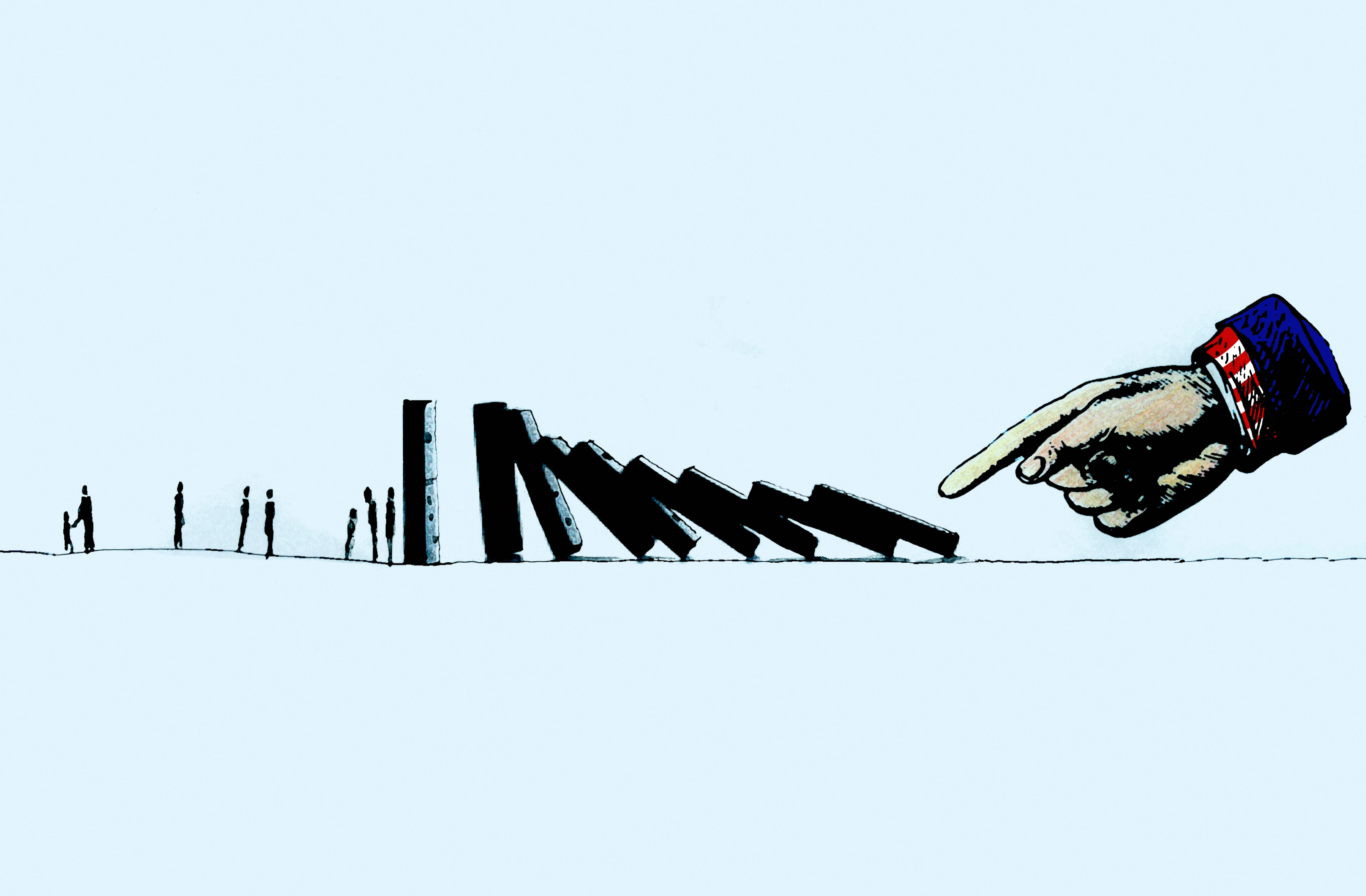When America meddles in foreign elections, it doesn't hack. It murders.
Remember: Undermining democracy isn't just bad when it happens here


A free daily email with the biggest news stories of the day – and the best features from TheWeek.com
You are now subscribed
Your newsletter sign-up was successful
The assertion of sundry anonymous officials in the CIA that Russian hackers deliberately influenced the 2016 presidential election has driven many liberal Democrats nearly into hysterics. Not without reason, either — the idea that foreign agents broke into the emails of the Democratic National Committee and Hillary Clinton's campaign manager John Podesta with the objective of assisting Donald Trump is incredibly alarming. What else might they be doing?
While the CIA might be the most untrustworthy institution in the entire American government, circumstantial evidence also suggests the hack was probably Russian in origin. It's right to be disturbed, and investigations must happen — but for the United States, it's also a taste of our own medicine.
The American history of foreign electoral manipulation — most of it far, far worse than what happened to Clinton — is a mile long. The fear and paranoia unleashed by this incident ought to weigh on American minds when we think about our own meddling security apparatus.
The Week
Escape your echo chamber. Get the facts behind the news, plus analysis from multiple perspectives.

Sign up for The Week's Free Newsletters
From our morning news briefing to a weekly Good News Newsletter, get the best of The Week delivered directly to your inbox.
From our morning news briefing to a weekly Good News Newsletter, get the best of The Week delivered directly to your inbox.
As an initial matter, it's important not to overstate things. Hacking internal communication from one campaign to embarrass them is not rigging the election. So far as we know, the actual election procedures were not compromised; the ballot boxes were not stuffed, the counts were not falsified, and people were not prevented from voting (with the exception of Republican states defying federal court orders to stop disenfranchising black people).
That makes the Russian hack far less interference than what happened to, say, Iran in 1953, when the CIA and the British government forcibly removed a democratically-elected prime minister and made the weak Iranian monarch into a brutal, torturing dictator. Or Guatemala, where a U.S.-backed coup in 1954 installed a right-wing dictator, touching off a 36-year civil war that killed maybe 200,000 people. Or Chile, where a U.S.-backed coup in 1973 installed a right-wing dictator who killed thousands and imprisoned and tortured tens of thousands. Or Congo in 1960. Or Haiti on a half-dozen occasions. And on and on.
Even when we aren't murdering democratically-elected leaders of foreign countries to protect oil companies or fruit companies or because of hysterical paranoia about Communism, America has non-violently meddled with elections all over the place. Before they overthrew Chilean President Salvador Allende in 1973, U.S. agents lost him the 1964 election with a blizzard of cash and propaganda. In Italy in 1948, the CIA beat down leftist political parties with bags of cash, fabricated smear campaigns, and other dirty tricks. It has similarly meddled in France, Paraguay, Costa Rica, Panama, Portugal, Bolivia, and many other nations.
This history is apparently not well-known among some liberal writers. But stark hypocrisy about democracy is also no stranger to American history. As Patrick Blanchfield and Patrick Iber write in a brilliant history of the term "banana republic:"
A free daily email with the biggest news stories of the day – and the best features from TheWeek.com
[W]hat ties together invocations of banana republics on the left and right as a term of political abuse is a shared investment in histrionic American chauvinism. "Banana republic," by conjuring backwards hellholes, evokes its supposedly respectable and stable opposite: In the words of former George W. Bush attorney general Michael Mukasey, that's "not the way we conduct politics here." But of course, the lesson of the history of banana republics is that such is precisely the way Americans conduct politics — but over there. Pieties about the respect for democratic institutions stop at the water's edge; from there onwards, Americans apparently expect nothing and have a history of inflicting worse. [The Baffler]
Russia may well gain spectacularly for having tipped the scales for Donald Trump, with the removal of economic sanctions (and probable spectacular profit for ExxonMobil, whose CEO is to be nominated as Trump's secretary of state).
But it's worth remembering that a great many of America's electoral interventions backfired spectacularly in the long run. From the endless chaos in the Democratic Republic of Congo to terrible instability in Central America to an Iran understandably highly hostile to America, we'd often have done better on the most cold-blooded terms to simply allow other nations to manage their own political affairs. Fiddling with other nations' politics only makes America look like a nation of hypocrites when someone pulls the same trick on us.
Ryan Cooper is a national correspondent at TheWeek.com. His work has appeared in the Washington Monthly, The New Republic, and the Washington Post.
